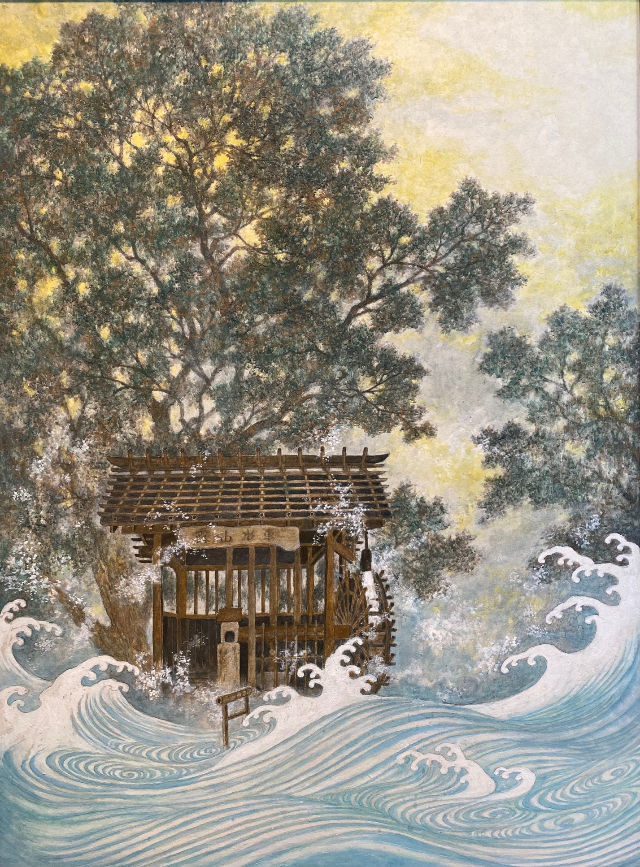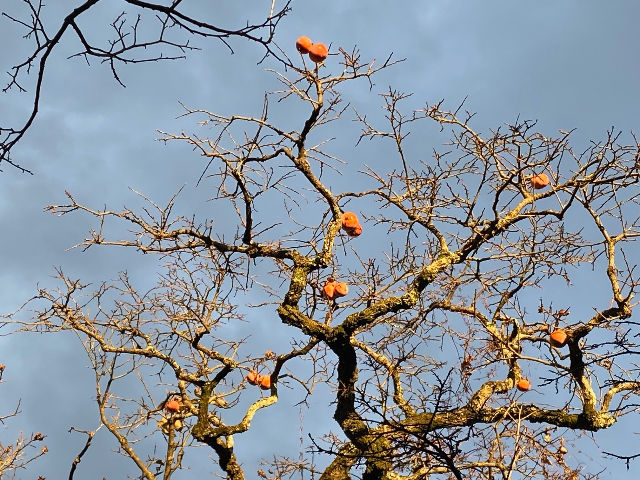THINGS I NO LONGER DO
- Rebecca Otowa
- Jan 24, 2023
- 5 min read

Recently I have been writing about my early married life in this house, and the differences from the life I now live. I think every woman who lived in this house, in every generation, could make a list like this. Here are a few things I no longer do, compared to 40 years ago when I came to reside here.
I no longer go to shops that are within walking distance, because there are none. In fact, there are no shops in our area; huge supermarkets and American-size drug stores have replaced most of the Mom-and-Pop places in villages. There were 11 shops when my husband was a child, and 6 shops when I first came here. Now, I either have to drive or ride my bike (if not too much stuff to carry is involved, and if the weather is OK). Experiences I have now lost because of this:
I no longer carry a plastic or metal bowl to the tofu maker to buy a big, juicy, fresh-made block of momen-goshi (coarse) tofu.
I no longer put old futons in a wheelbarrow and trundle them over to the clothes shop / tobacconist, which also would wash the cotton batting inside futon. I would receive it in brown paper bags and keep them until I had made a new futon cover, when (at my mother-in-law’s direction) I would lay the batting over the inside-out cover and wrestle it into the cover, smacking it a thousand times or so to get it to lie flat. I still order new futon to be made out of the batting (the old stuff is very high-class, and can be reused many times) but the rest of the process is lost to me.
I no longer go to the grocery store to order food for a funeral or memorial service. Food is no longer served at funerals; in fact funerals are no longer neighborhood activities. Neighbors, many times, cannot say a final goodbye to people they have known all their lives, because funerals are held far away, or are confined to family members, because of Covid or to save money. Being part of neighborhood funerals was onerous, but the camaraderie is gone along with the trouble.
I no longer wave to the policeman in his little box of an office. The whole building is gone; we no longer have a policeman in our village. Admittedly he didn’t have much to do, but he was there, as the time when I ran in to tell him that my dog had picked up a poison bait in the mountains and died that same day. I wanted to report the people who had left the bait, which was probably meant for monkeys. (Nothing was ever done, but I did have someone to tell my tale of woe to.)
I no longer take kids to the little sweetshop, which also sold things like toilet paper and detergent, to buy strange little sweets such as “whistle candy”, a white donut-shaped suckable sweet that, when blown through, emitted a piercing shriek capable of scaring the pants off mom, dad, or any others unlucky enough to be nearby.
Here are some things I no longer do in my house.
I no longer crouch down at the back of the bathhouse to build a fire of sticks and cedar branches under the bath. This firepit was a staple of my early marriage, along with the tiled bath, which had a removable slab of wood in the bottom so you wouldn’t burn your feet (the fire was only a few inches away beneath the metal bottom).
I no longer keep tabs on how full the three toilet pits were, so I would know when to call the nightsoil guy with his truck (called a “vacuum car”) and long brown hose. Sometimes I had to empty them myself, with special buckets and ladles on long poles. My mother-in-law used to take the “stuff” to use in the veggie patch as fertilizer. Thus life in the countryside was always coming full circle. We got a sewer system in the early 2000s, so pit toilets are no longer part of my life. Although I am grateful, there is still a very small part of me that remembers this with fondness.
I no longer keep an eye on the house martens who used to fly in every May and make nests in our shed. Strong doors now block off the entrances of the shed, and they can no longer come in to build their mud nests and have cheeping families. Another change I’m not completely grateful for.
I no longer haul myself up from ground level to the 50 cm. or so higher level of the house floor. (The polite way to invite guests into your home is to say, “Come on up.”) A few years ago, I asked my husband to build little steps at some doors so it would be easier on my aging legs.
I still, however, take off and put on my shoes at almost every door. I don’t think that
will ever change. I imagine little grannies in previous generations devising ways to get up into their own house; I wonder if any of them devised extra steps for this.
Speaking of hauling, I no longer haul myself up from my bed using a strategically placed bar. I used to sleep on a futon on the floor (we - my husband and I - did, it was a big double futon made my me). Now we sleep separately, in actual beds that you get OUT of rather than getting UP and out. Much easier on the bod.
I no longer wear kimono of any kind. Not only do I feel I don’t look so good in kimono any more, I also don’t want the restriction and discomfort of it. I used to wear it occasionally on special occasions, now I don’t even do that. They are pretty, but…
This is of course only a partial list. Many other former things in my life are no more, or have been replaced by other, more convenient things. It’s a continuum -- I’m sure my ancestors, only a couple of generations ago, were greatly influenced by the advent of actual running water or electricity in the house. No more hauling every drop of water from the hand pump at the wellhead. No more fiddling with candles, rushlights, or whatever they used for light before electric ones. Maybe they just went to bed when it got dark.
But everyone’s life changes seem earthshaking to them, especially in retrospect. Mine, over the past 40 years, have seemed earthshaking enough. For more information on how things have changed in villages like mine over the years, see my essay in the anthology called “Inaka: Portraits of Life in Rural Japan”, (Camphor Press 2020, edited by John Ross).



I really like this essay, Rebecca. Especially because the things you remember are very different from the ones I do, probably because I lived in Tokyo when you were living in the country. The one thing I wonder about is what your water tasted like. I once went to visit some relatives (of my husband's) in Kyushu, and they had well water, which was so delicious. I remember thinking that I had forgotten how good water could taste. Have never tasted water like that since.
When we first moved to our Tokyo neighborhood in 1998, its shotengai was a REAL shotengai -- I used to bring my own containers to buy big blocks of tofu, and I can still remember the unique taste of my favorite pickled daikon from the vegetable stop (made from a pickle starter than had been in use since at least the 1940s). The shopkeepers knew my kids' names and kept an eye on them -- and the tofu maker once even reported to me that my older son had failed to properly return his "aisatsu" greeting! Those shops are mostly gone now, and so much is lost.
Faulkner wrote "The past is never dead. It's not even past." Somehow, the past does not seem so very long ago in Japan. It's impossible to imagine doing in the US most of the things you did as a matter of daily life only a few decades ago in Japan. I first went to Japan in 1982, and I vividly recall being greeting by the reek of the pit toilet on going into some people's houses. Western-style commodes were still something of a rarity. Etcetera. But the terrible depletion and hollowing-out of village life in contemporary Japan: that's so hard to accept!
The ways our ancestors lived…my old-time memory is my grandmother cooking on a wood stove. I was very little and it may have been just because they had a houseful, and there was also a gas or electric stove, says one of my many cousins. There was running water, electricity and plumbing, though almost certainly septic, which is an improvement over a cess pit. And not, not at all, that long ago.